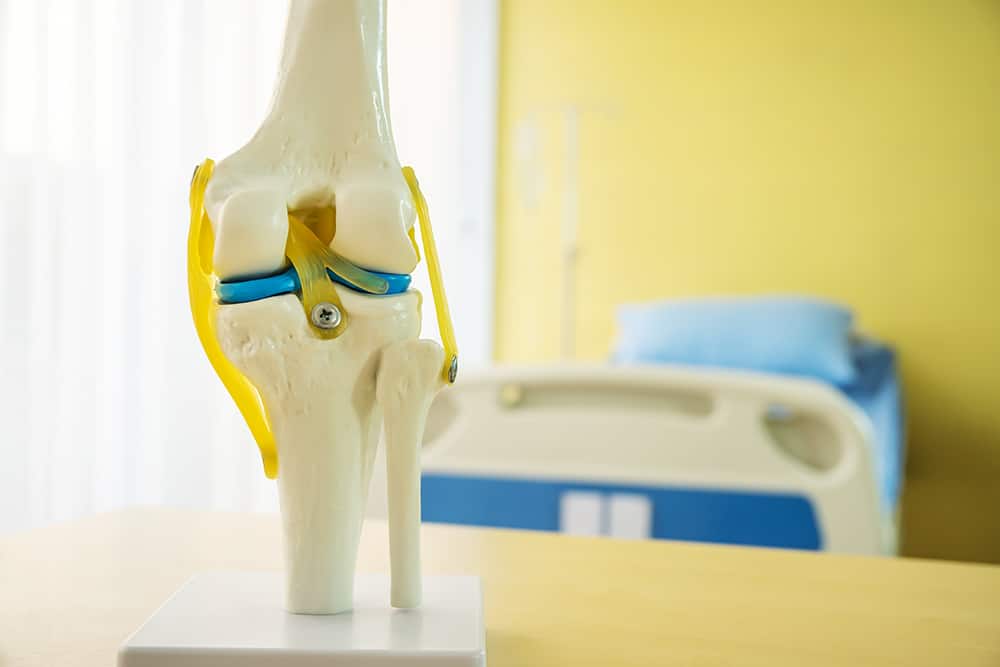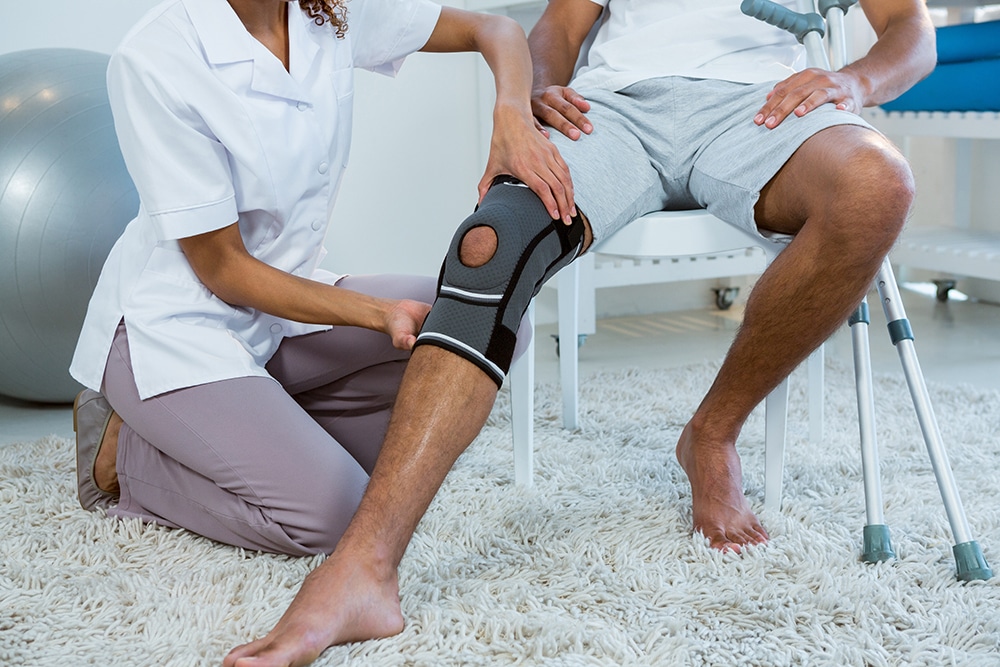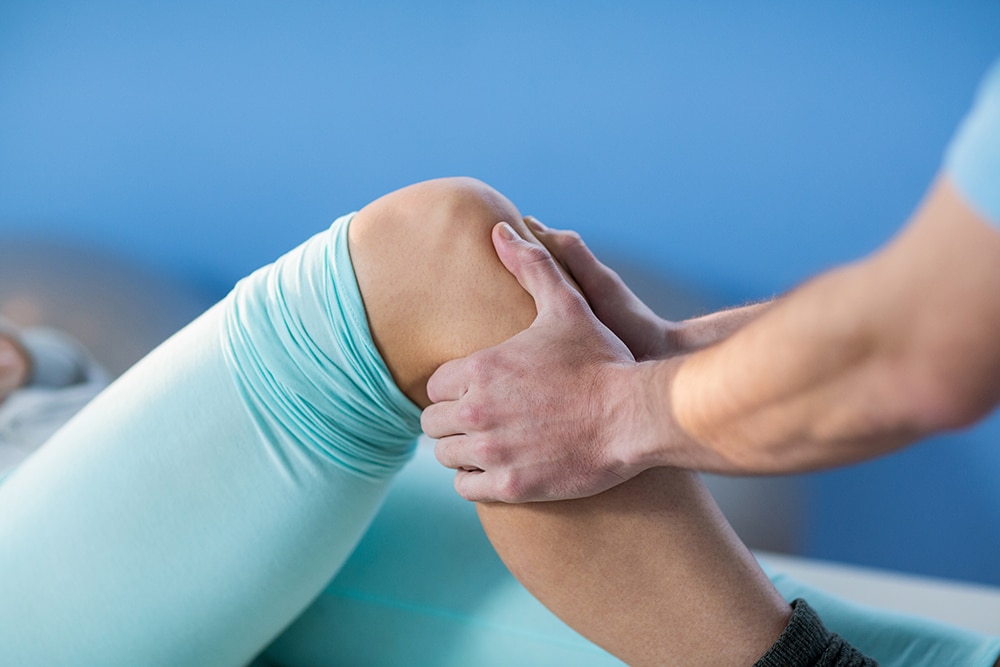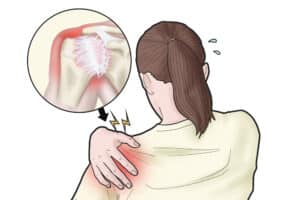Arthritis is inflammation of one or more of your joints. Along with inflammation, people usually experience pain, swelling, and stiffness from arthritis. If you have arthritis in your knee, it may make everyday activities, such as walking or climbing stairs, hard to do.
Physiotherapy can help arthritis in your knee or knees by reducing the pain and improving your knee’s range of motion and strength.
However, in some cases, the arthritis may be too severe for nonsurgical treatments. If this is the case, you may need knee replacement surgery to restore the function of your knee.
What Causes Knee Pain?
The knee joint is a synovial joint that connects three bones: the femur, tibia, and patella. It is a complex hinge joint composed of two articulations: the tibiofemoral joint and patellofemoral joint.
Articular cartilage is the smooth, white tissue that covers the ends of the bones where they come together to form the joints. Healthy cartilage in our joints makes it easier to move. It allows the bones to glide over each other with very little friction. Articular cartilage can be damaged by injury or normal wear and tear.
When the articular cartilage of the knee becomes damaged or worn, it becomes painful, and the knee can be hard to move. Instead of sliding over each other, the bones rub and crush together.
What Is Knee Replacement Surgery?
The goal of knee replacement surgery is to remove pain and restore mobility.
Knee replacement is a surgical reconstruction and replacement of deteriorated joints, using artificial body parts known as prosthetics.
With a prosthetic knee, the patient will feel less pain, and the knee will move more easily.

Conditions That Can Lead to Knee Replacement Surgery
There are three common reasons for knee replacement surgery:
Osteoarthritis (OA) is the most common form of arthritis. It is also known as degenerative joint disease. It is caused by inflammation, breakdown, and the gradual and eventual loss of cartilage in the joints. Over time, the cartilage wears down and the bones rub together.
Rheumatoid arthritis (RA), also called inflammatory arthritis, is a chronic autoimmune disease that attacks multiple joints throughout the body, including the knee joint. It usually affects the same joint on both sides of the body. Chronic inflammation damages the cartilage, causing soreness and stiffness.
Post-traumatic arthritis is arthritis caused by a severe knee injury or knee trauma. When the bones around the knee break or the ligaments tear, this will affect the knee cartilage. It’s usually a temporary issue, and many people recover in a few months; however, if it lasts longer and becomes chronic, you may need surgery.
Reasons For Knee Replacement Surgery
When nonsurgical options have been unsuccessful in treating your symptoms, surgery may be the next option
If you experience these symptoms, knee surgery may be right for you:
- Severe knee pain or stiffness that limits or prevents you from completing everyday tasks including walking, climbing up stairs, or getting up from a seated position
- Chronic knee pain that is continuous even during rest
- Frequent knee inflammation and swelling that does not improve when taking medication
- Knee distortion, including arching in or outside of the knee
Physiotherapy after Knee Replacement Surgery
You have just gone through knee replacement surgery. Your surgeon has replaced your knee and fixed the issues. In the beginning, it is normal for you to still feel pain and stiffness. Now that the surgical procedure is done, and you have returned home, it’s time to make sure the surgery is as successful as possible. With physiotherapy, the aim is to restore strength and mobility to your knee and in time reduce the pain and stiffness.
Regaining your range of motion and strength after knee replacement surgery is critical to regaining your ability to do the things that are important to you. It is recommended that you work with a physiotherapist as soon as possible after your surgery to start an exercise program. Your physiotherapist will help you with the exercises and you will be given exercises to do at home as well.

Exercises after Knee Replacement Surgery
Regular exercise is a great way to build up the strength and the mobility of your knee. Start off slowly and gradually return to regular activities following the advice from your doctor and physiotherapist.
Here is a guide with examples of exercises that you can do at home after knee replacement surgery: https://orthoinfo.aaos.org/en/recovery/total-knee-replacement-exercise-guide/
To ensure your safe recovery, be sure to check with your physiotherapist or surgeon before performing any of the exercises shown.
Knee Replacement Surgery FAQ’s
How long does it take to recover from knee replacement surgery?
Everyone recovers at differ rates. You will usually be discharged from the hospital between 2–4 days after the surgery. Completing your daily exercises with a physiotherapist generally helps people to recover more quickly. Most people can return to their regular activities 3–6 weeks after the surgery. The swelling from the procedure may last up to a couple of months.
Why do you need physiotherapy after knee replacement surgery?
While you are still in the hospital, a physiotherapist will help you to walk assisted and help you to learn how to use crutches while you rehab. After that, your physiotherapist will access how you are healing and ability to complete everyday activities. Regular follow ups are required to get you started on an exercise plan that will allow you to improve your range of motion and strength. They will also assess you to make sure that there aren’t any problems after the surgery.
How much should I walk after knee replacement surgery?
Walking is recommended to gain strength of mobility. For the first 3–6 weeks, you may need support with a cane, walker, or crutches to move around. Your physiotherapist will likely recommend that you work up to walking 30 minutes a couple times a day as part of your rehabilitation.
Do I have to pay for the physiotherapy treatments?
Those who have had a total knee replacement (TKR) through UBC hospital are eligible for 12 physiotherapy visits (TKR), paid for by Vancouver Coastal Health.
We also accept all major forms of insurance as well as self paying options.








